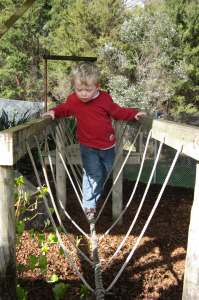
Exponential Education: Releasing Human Potential
Remember that moment playing tic-tac-toe when you discovered if you were the first one to mark a square, you could beat your opponent? If you always won, what was the fun of that? It was on to bigger and better games.
In the movie, War Games, a computer designed to send off nuclear warheads calculates that war is a zero sum game. No one wins.
Today our systems, or institutions, in America are in a state of uproar. Our systems are caught between tic-tac-toe and War Games, where the first to play always wins or where the outcomes are such that everyone loses.
Systems should be designed to protect and create.
The financial system should protect our financial resources. As Warren Buffet says, the first rule is to not lose money. Our health systems should protect and create health. Our educational systems should protect and create knowledge. But I’ve left out a critical phrase here. A system is designed and maintained by people to protect and create for the benefit of the people it serves.
At its core–though we seldom look at it this way–systems are designed to protect children to ensure children’s survival and thus the success of humanity.
To use a system requires a basic level of knowledge on how a system works. Knowledge is the job of education. Knowledge has to be based on truth, otherwise information becomes a wobbly fantasy foundation that cannot create new knowledge or protect previous learning.
All of our systems, from family relationships, friendships and schools, require an educational system for the creation and protection of knowledge.
Our problems in the world today are problems of education. We have to stop playing the blame game of why things aren’t working. We have great students, great teachers, great parents and a system that chews them up and spits them out. We’ve created a system that is based on a factory model of getting more “units” through the system versus a craftsman idea of quality. We’ve forgotten that all our systems–banking, health, transportation, government–are to serve people, especially children.
It is time to repair, rebuild and return our systems to help and protect the people they serve.
We have created an educational system where students don’t have enough time to learn, to process, and to explore new ideas. Teachers are blamed for poor test scores. Parents are asked via homework to teach children what teachers and children in our system don’t have the time to teach and learn. Parents are asked to pay for tutors, psychiatrists and drugs when their children don’t learn. Children feel like failures. Teachers feel like failures. Parents feel like failures.
Today, one in every 100 adults in the U.S. is incarcerated. We have at least 63 million adults in the U.S. that can’t read over the fourth-grade level. Less than 7 out of 10 students graduate from high school. In 2005, about six million American school children used Ritalin for ADHD symptoms.
Why? For those who feel like failures, and the number is large, it is because we are on an old rusty bus going down an ill-prepared road.
We have lost our way in the maze we call our educational system. It’s nobody’s fault.
We can choose to get off the bus, find another way and realize that we don’t have to play a game where many don’t and can’t win.
Our world needs every mind to be able to focus and heal the world. Famine, poverty, crime, disease, family violence, religious strife and war–all solvable if we solve the “Education Problem.”
Over the next few posts, we’ll examine positive steps to change our system and find a “bus” that is modern, efficient and where children, teachers and parents work together to design new ways to create and protect knowledge and truth. We live in times of exponential change. We need exponential change in education.
It is time to repair, rebuild and return our educational system to be a system that creates and protects knowledge, for the love of our children.
This is a series on creating a fresh educational approach.
Next: Every Brain Is Unique


One Response to “Towards the New Education”